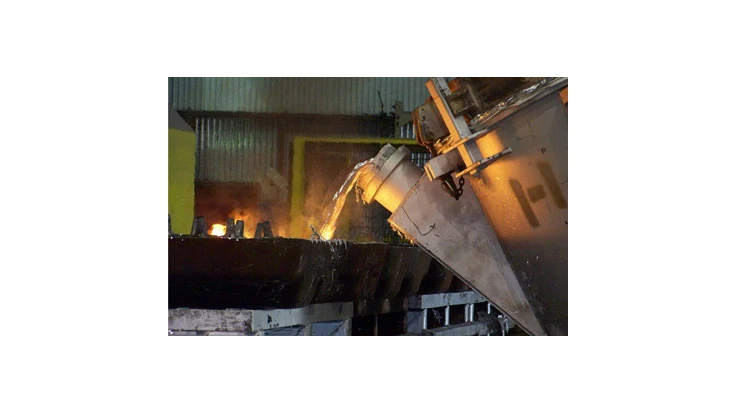
Alcoa, with headquarters in New York City and Pittsburgh, has announced that it plans to curtail its uncompetitive smelting and refining capacity to ensure continued competitiveness amid prevailing market conditions. The company says it will reduce aluminum smelting capacity by 503,000 metric tons and alumina refining capacity by 1.2 million metric tons beginning in the fourth quarter of 2015. The cuts will be completed by the end of the first quarter of 2016.
“The reductions will further improve the cost position of the Upstream business and ensure competitiveness in a lower pricing environment, including a 30 percent drop in the Midwest transaction aluminum price year to date,” Alcoa states in a news release. The company says it has been aggressively reshaping its Upstream portfolio as part of a multiyear strategy to position itself as a low-cost global leader in alumina and aluminum production. Once today’s actions are complete, Alcoa says it will have closed, divested or curtailed 45 percent of total smelting operating capacity since 2007. Since March 2015 alone, the company also has curtailed or closed 673,000 metric tons of uncompetitive smelting capacity and 2.5 million metric tons of uncompetitive refining capacity since its announced review of 500,000 metric tons of smelting capacity and 2.8 million metric tons of refining capacity.
“Alcoa has consistently taken decisive actions to create a commodity business that is positioned to succeed throughout the cycle,” says Klaus Kleinfeld, chairman and chief executive officer of Alcoa. “We have closed or curtailed unprofitable capacity, repowered key assets at lower energy prices, built up a profitable value-add casthouse network, established the foundation for a strong commercial bauxite business and made substantial productivity improvements. In the face of continued adverse market forces, we are once again not standing still. These difficult but necessary measures will further strengthen our Upstream portfolio, reducing our cost position and driving greater resilience as we prepare to launch this business as a strong standalone company in the second half of 2016,” he adds.
In its aluminum business, Alcoa will idle the Intalco and Wenatchee primary aluminum smelters in Washington state and the Massena West smelter in New York. The company says it will not modernize the New York Massena East smelter and will permanently close the facility; potlines at Massena East have been closed since March 2014. The casthouses at Intalco and Massena West, which produce value-added shaped products, will continue to operate. The Alcoa Forgings and Extrusions facility in Massena is unaffected.
In its alumina business, Alcoa will partially curtail refining capacity at its Point Comfort, Texas, facility by about 1.2 million metric tons.
“Across the globe, we have been taking measures to curtail smelting and refining capacity that is not competitive to improve our cost profile,” says Roy Harvey, executive vice president and president, global primary products. “Alcoa has a long, proud history at the affected locations, and our dedicated employees have worked hard to keep our facilities competitive in the face of challenging market conditions. Unfortunately, today’s pricing environment necessitates very difficult decisions. We recognize how deeply these decisions affect our Alcoa family and communities and are committed to working closely with our employees and unions and local stakeholders to support them through this transition,” he continues.
Total restructuring-related charges in the fourth quarter of 2015 associated with this recent curtailment announcement are expected to be between $160 million and $180 million after-tax, or 12 cents to 14 cents per share, of which approximately 30 percent would be noncash, Alcoa says.
As previously announced, Alcoa will separate into two publicly traded companies in the second half of 2016—an Upstream-focused company including its mining, refining, smelting, energy and casting businesses, and a Value-Add company including its global rolled products, engineered products and solutions, and transportation and construction solutions businesses.
Latest from Recycling Today
- BMW Group, Encory launch 'direct recycling’ of batteries
- Loom Carbon, RTI International partner to scale textile recycling technology
- Goodwill Industries of West Michigan, American Glass Mosaics partner to divert glass from landfill
- CARI forms federal advocacy partnership
- Monthly packaging papers shipments down in November
- STEEL Act aims to enhance trade enforcement to prevent dumping of steel in the US
- San Francisco schools introduce compostable lunch trays
- Aduro graduates from Shell GameChanger program





